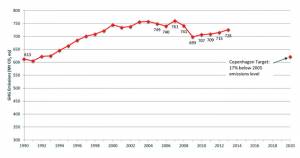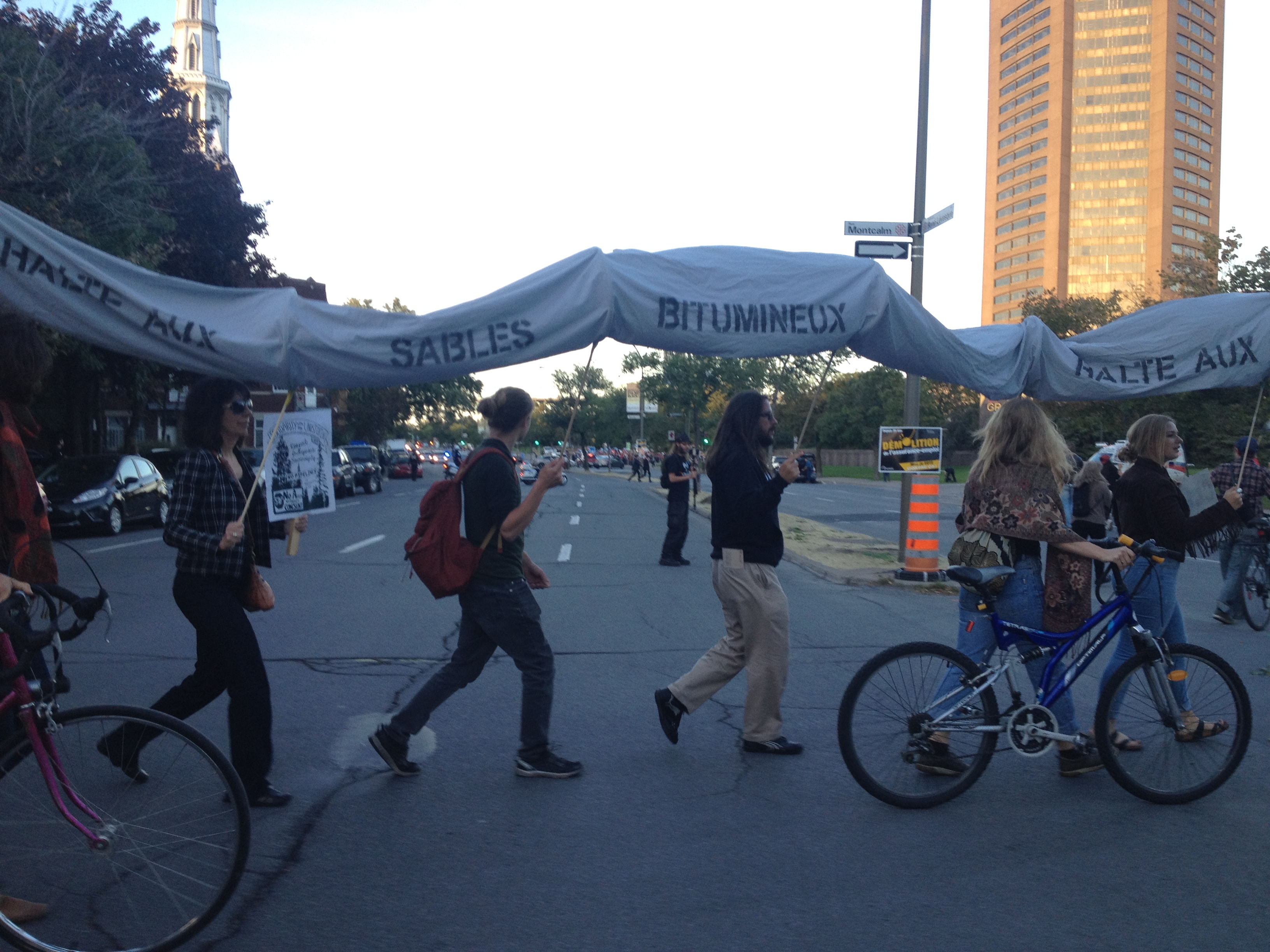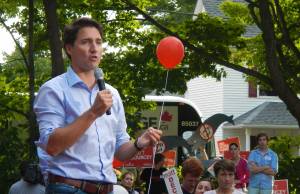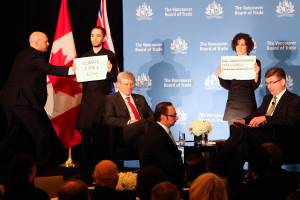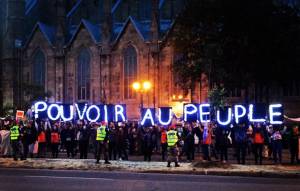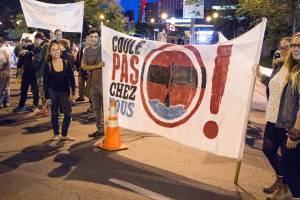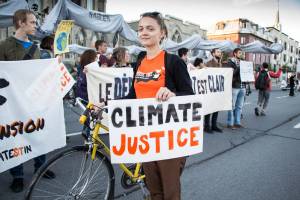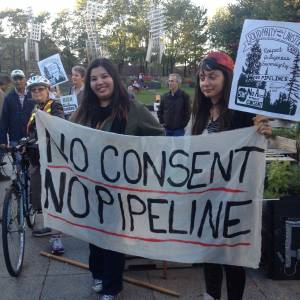The #DébatDesChefs was the third debate in this election. At this point, we’re not hearing anyone presenting a novel perspective or raising a compelling idea, especially not when it comes to climate change. We’re just hearing the Prime Minister candidates repeat the same exact things that they’ve been saying for the last two months — and a lot of the time, they’re trying to convince us of things that simply are not true.
We know, one fact for sure: none of the major leaders has a plan that’s in line with the science of climate change. Here are some other facts that it’s about time we straightened out.
FACT CHECK #1: The Conservatives have not been reducing Greenhouse Gas Emissions.
You might have noticed that Stephen Harper keeps repeating this one. The fact is, emissions declined in only one year since Harper became Prime Minister and it was not as a result of any sort of climate leadership on his part.
GHGs declined from 2008 – 2009 when the economy slowed down as a result of a global recession. Once the economy made a comeback, GHG emissions did too and they’ve been on a rise ever since.
One thing Harper likes to omit is that they would actually have been increasing even more sharply if it hadn’t been for provincial leadership on climate change such as Ontario’s initiative to shut down provincial coal plants and introduce the Green Energy Act. Here’s data published by the government itself showing GHG emissions:
In the grand scheme of things, a 2% decline in GHG emissions is an insult to the millions of people that are already facing the impacts of climate change. The Intergovernmental Panel on Climate Change has confirmed that the world must drastically depart from Business as Usual if there is any hope of avoiding catastrophic climate change.
Also, let’s not forget, these numbers are only accounting for in-country GHGs. They’re not taking into consideration all of the emissions that have been exported from Canada in the form of tar sands, fracked natural gas and coal — the industries that have become the foundation of our economy.
FACT CHECK #2: Canada’s one of the worst countries in the world for refugee settlement.
Harper has been determined to convince Canadians that his government has been welcoming refugees, when, in fact, it’s been much of the opposite. The Conservative government has been annually settling 10,000 refugees (about 0.001% of the 60 million refugees across the world). Other countries have far surpassed that number. Germany, for example settles 80 times that number.
They haven’t only shut down borders. The Harper government’s also been axing healthcare services for refugees, and making it easier to incarcerate and deport members of these communities. When we hear on national television that they’re “generous and reasonable” we can’t help but cringe.
And let’s also remember that any recent change the government has introduced has come after massive outrage across the country at Harper’s immigration policies in the wake of Alan Kurdi.
FACT CHECK #3: Trains or Pipelines is an empty debate.
Last night, the potential Prime Ministers were asked about their preferred mode of transporting tar sands oil, and none of the major leaders really acknowledged the reality. It doesn’t matter how we transport it, ultimately, it’s unburnable oil if we want to live in a safe climate and keep global warming under 2C. We know that 85% of Canada’s tar sands simply need to stay in the ground and once again, none of the leaders addressed this scientific reality.
FACT CHECK #4: Climate Change is not just a provincial responsibility.
Justin Trudeau keeps discussing his plan to encourage provincial leadership on climate change. It’s true that in Canada, some provinces have taken impressive strides towards reducing emissions and accelerating the transition to green energy.
However, a global crisis of this magnitude demands ambitious national measures. Expecting provinces to be the only ones taking leadership on this issue is pretty much equivalent to shirking the responsibilities of a national leader.
Let’s not forget too that the provinces have been working on a Canadian Energy Strategy that isn’t focused on phasing out fossil fuels, but, to the contrary, is rather weak on climate commitments and affirms support for pipelines.
FACT CHECK #5: Pipelines are not assessed through a scientific evaluation.
Stephen Harper dropped this fib in the middle of the train versus pipeline debate. Let’s be clear: the National Energy Board review is far from a comprehensive, scientific evaluation. For starters, climate scientists have been banned from participating and the process has been excluding the climate question. Calls to suspend the Energy East project review have multiplied because of the NEB’s broken process.
Coupled with the gutting of Canada’s environmental regulations and muzzling of public service scientists, this doesn’t give us very much of a framework to scientifically evaluate pipelines. What we need is an overhaul of Canada’s regulatory system, and a new system that thoroughly accounts for climate impacts.
FACT CHECK #6: Real political change is more than talking points — it’s about people power which is only getting stronger.
For all the discussions in the debate touching on democratic reform, abolishing the Senate and rights-violating Bill C-51 — and the dire absence of a conversation on First Nations and Treaty rights — it’s important to remember that just outside the debate, a crowd of several hundred people were reminding Prime Minister contenders that it’s the people that elect them. And that it’s people power that moves policies towards a more just economy and a safe planet that operates in accordance with principles of environmental and social justice.
